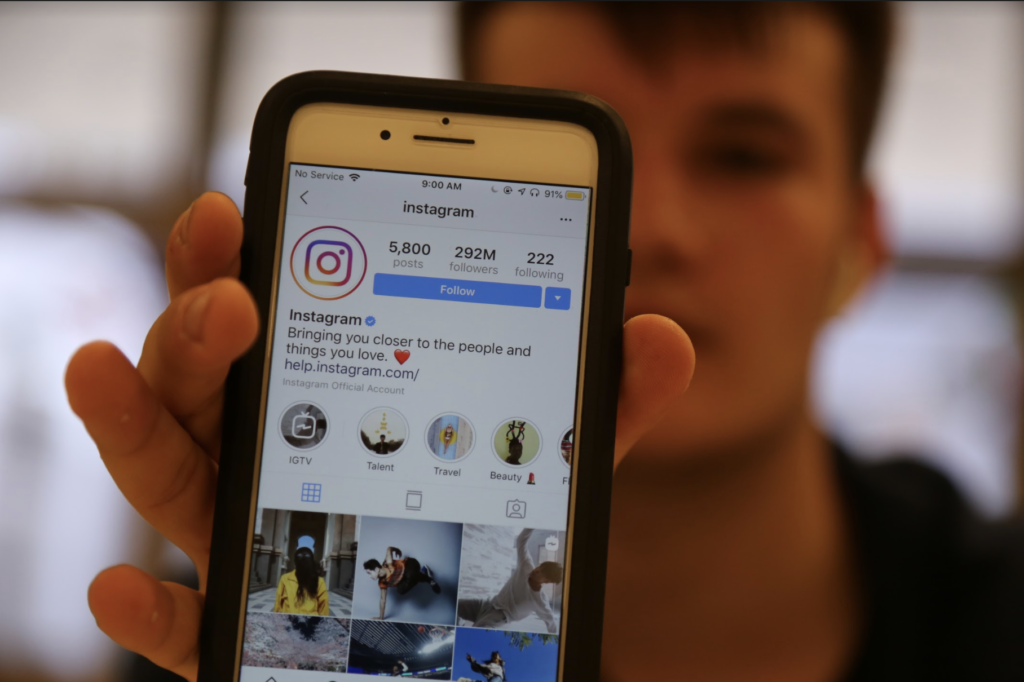
By Kayla Kim, Staff Writer
Instagram has swept the world off its feet. When it suddenly crashed in early March, people lost their minds not knowing what to do with their time. With the excessive amount of panic that this shutdown caused among students, a question emerges: are we addicted to Instagram?
The idea of having an addiction is so quickly linked to the abuse of drugs or alcohol. However, it does in fact have a broader definition that encompasses everything that someone might feel they can not live without. Addiction is comparable to words like dependence, craving, weakness, and enslavement.
Reacting to the shut down on March 13, sophomore Esther Dai said, “Honestly, I wouldn’t be able to give Instagram up. I feel like I truly am addicted.” Most students would be able to relate to the urge, or craving, to pick up their phone and start scrolling no matter where they are or what time it is. When it comes to doing homework or studying for a test, scrolling through an app and constantly being fed unimportant news seems much more appealing. It might even be hard to even think of giving it up for a day.
Junior Cathy Choo understands how distracting social media can be when there is work that has to be done. “Once I start scrolling, it’s hard to stop,” she said. “The endless pages of content are so enticing that it’s hard to put down my phone, causing me to waste countless hours instead of doing homework and studying like I should be. In other words, it takes away valuable time I could be using to be more productive.”
Discussing the cons of social media, Health and Physical Education teacher Jamal Bermudez explained that when young children are exposed to tablets and smartphones, “The synaptic wiring in the brain and neurons that are supposed to form and connect don’t have a chance to fully develop in its gradual and natural way as intended.” This underdevelopment, according to Mr. Bermudez, has a direct effect on areas such as social skills, self-awareness, and the inability to form deep connections with people. He said that his own 15-year-old son “has trouble looking people in the eye when talking with them, and [also with] using a loud enough voice so that people can hear him clearly.”
Spending too much time in a virtual world alters our reality and our values. We post only the pictures that we look best in, and see only what people choose to let us in on. Sophomore Cynthia Hardy said, “It’s the satisfaction of ‘making’ something, sharing it, and gaining this instant positive feedback.”
Moderating and controlling the time we spend on our phones will play a big part in our lives; it’ll allow us to focus on school work and deepen relationships with friends and family. As students of Townsend Harris with so much work on our hands, it will help to get off Instagram and enjoy the present.




























